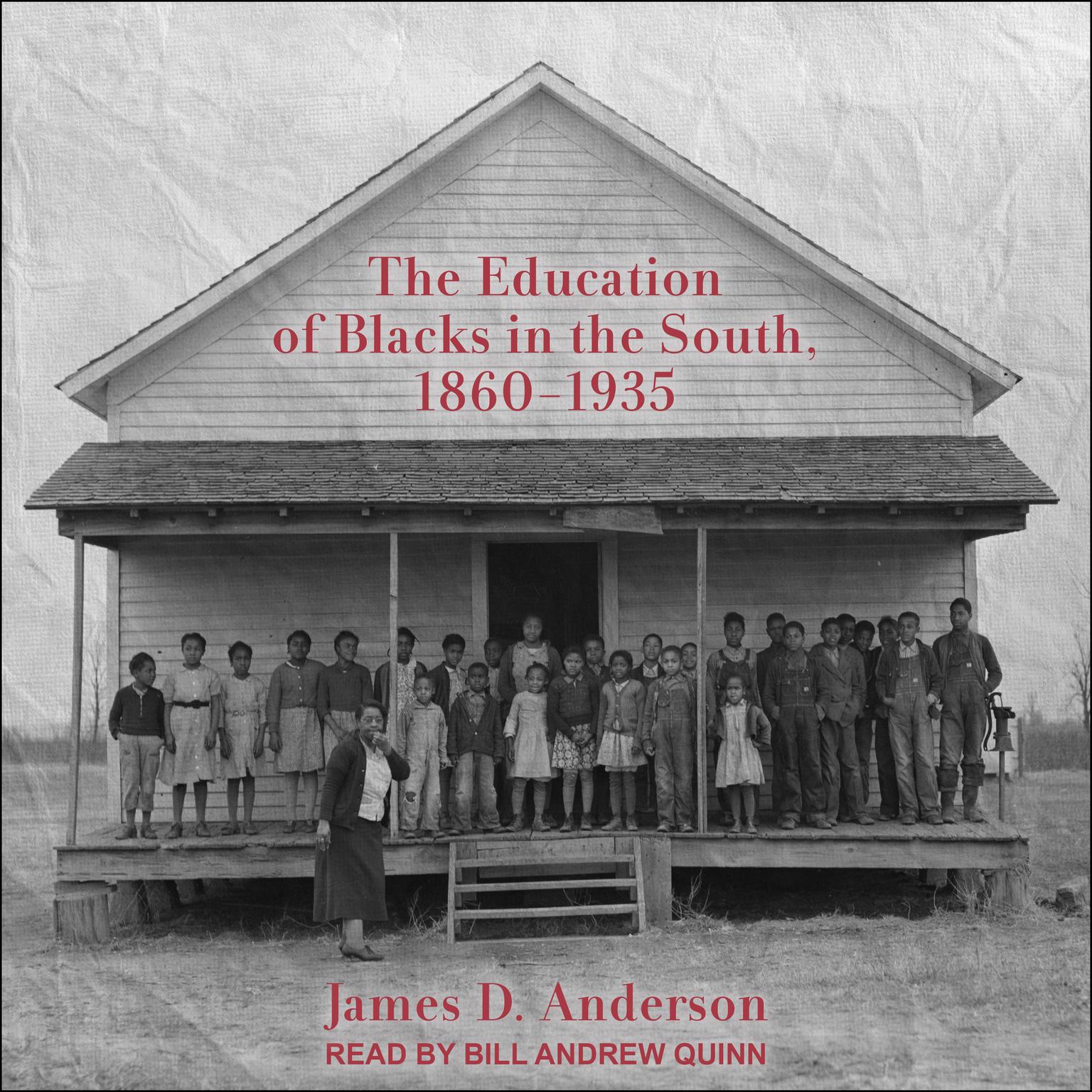 Play Audiobook Sample
Play Audiobook Sample
The Education of Blacks in the South, 1860-1935 Audiobook
 Play Audiobook Sample
Play Audiobook Sample
Quick Stats About this Audiobook
Total Audiobook Chapters:
Longest Chapter Length:
Shortest Chapter Length:
Average Chapter Length:
Audiobooks by this Author:
Publisher Description
James Anderson critically reinterprets the history of southern black education from Reconstruction to the Great Depression. By placing black schooling within a political, cultural, and economic context, he offers fresh insights into black commitment to education, the peculiar significance of Tuskegee Institute, and the conflicting goals of various philanthropic groups, among other matters.
Initially, ex-slaves attempted to create an educational system that would support and extend their emancipation, but their children were pushed into a system of industrial education that presupposed black political and economic subordination. This conception of education and social order—supported by northern industrial philanthropists, some black educators, and most southern school officials—conflicted with the aspirations of ex-slaves and their descendants, resulting at the turn of the century in a bitter national debate over the purposes of black education. Because blacks lacked economic and political power, white elites were able to control the structure and content of black elementary, secondary, normal, and college education during the first third of the twentieth century. Nonetheless, blacks persisted in their struggle to develop an educational system in accordance with their own needs and desires.
Download and start listening now!
The Education of Blacks in the South, 1860-1935 Listener Reviews
Be the first to write a review about this audiobook!
About Bill Andrew Quinn
Bill Andrew Quinn is a veteran in the voice-over world. In addition to hundreds of commercials and audiobooks, his many credits include work on The Sopranos, The Montel Williams Show, and Showtime at the Apollo, as well as characters for Grand Theft Auto IV and other video games. Totinos, Corona, Lincoln-Mercury, and McDonald’s are among his many television campaign clients.


